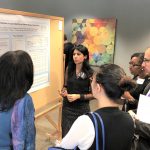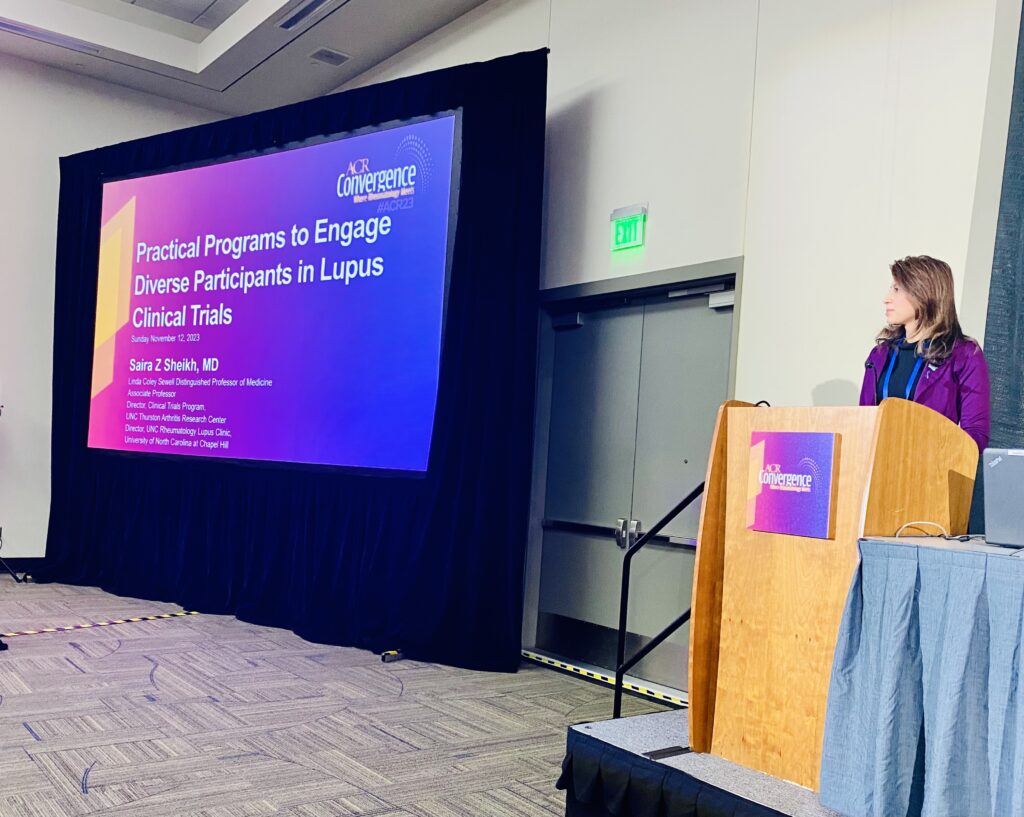Our Ongoing DEI Efforts
News Update: The UNC School of Medicine has received the 2022 Health Professions Higher Education Excellence in Diversity (HEED) Award from INSIGHT Into Diversity magazine! Learn more via this link.
The following is a partial list of our DEI efforts. Stay tuned…there is a lot more to come!
Workplace and Climate
Recent examples of UNC and Department of Medicine’s additional commitments to Diversity, Equity and Inclusion:

- Permanent senior leadership role: Dr. Keisha Gibson, MD, MPH; Vice Chair for DEI in the UNC Department of Medicine
- Designated senior level “Diversity Champions” in numerous UNC Departments, Divisions, and Research Centers
- Robust UNC DEI website with important updates and resources for faculty and staff
- “Departmental Climate” survey focused on better assessing DEI-related issues and opportunities
Examples of TARC/Division’s senior leadership’s commitment to Diversity, Equity and Inclusion:
- A permanent member of the TARC leadership team has been dedicated to proactively assessing and addressing our policies through a DEI lens.
- Leadership meetings now include regular updates from the designated “Diversity Champion” (Dr. Onyi Iweala).
- The creation of a TARC website section focused on current and upcoming DEI initiatives and resources.
- DEI goals highlighted as a common thread throughout the TARC/RAI 5-year strategic plan.
Curriculum and Scholarship
 The Division of Rheumatology/Allergy/Immunology presents DEI-related educational series presentations for healthcare professionals. Recent examples include:
The Division of Rheumatology/Allergy/Immunology presents DEI-related educational series presentations for healthcare professionals. Recent examples include:
- Dr. Sofija Volertas – Generative AI in Healthcare and Biases
- Dr. Isaretta Riley – The Role of Implicit Bias in Workforce Diversity in Medicine and Research
Other recent publications of related research efforts have included:
- A historical review of pain disparities research: Advancing toward health equity and empowerment (April 2023)
- Implications of the accuracy of diagnostic algorithms for systemic lupus on our understanding of racial disparities in pregnancy outcomes (January 2024)
- A Provider-Based Approach to Address Racial Disparities in Lupus Clinical Trial Participation (July 2023)
- Exploring Gender Differences in Veterans in a Secondary Analysis of a Randomized Controlled Trial of Mindfulness for Chronic Pain (February 2024)
- Improving Health Equity in Rheumatology Through Workforce Diversification and Support for Health Equity Research and Education (January 2024)
We’re excited about additional, recent efforts, which have included:
- Robust integration of DEI-related issues during our Annual TARC Research Day: A dynamic, virtual gathering of leading TARC and affiliated clinicians and scientists, sharing the most important new insights resulting from their ongoing research. Included integration of diversity, equity and inclusion-related learning topics in every session of day-long meeting, from keynote to breakout sessions.
 Inclusion of DEI-specific considerations into national “Lunch and Learn” topic presentations regularly hosted by the Osteoarthritis Action Alliance (OAAA).
Inclusion of DEI-specific considerations into national “Lunch and Learn” topic presentations regularly hosted by the Osteoarthritis Action Alliance (OAAA).- Ongoing Collaboration with Movement is Life, a multi-disciplinary national coalition seeking to eliminate racial, ethnic and gender disparities in muscle and joint health by promoting physical mobility to improve quality of life among women who are African American, Hispanic/Latina or live in rural communities.
- A significant portion of our researchers spend much of their time focused on important social issues such as health disparities, health literacy, and community-based physical activity interventions.
Access and Success
 To increase our level of proactivity, and further ensure fair and equal access, a dedicated team of our faculty members are working together to focus on:
To increase our level of proactivity, and further ensure fair and equal access, a dedicated team of our faculty members are working together to focus on:
- Active recruitment of women and faculty who are underrepresented in basic research sciences to TARC.
- Evaluating our current recruitment and interview practices for our Rheumatology, Allergy and Immunology fellowship program.
Community Engagement Efforts
The broad scope of our ongoing efforts reach across categories including the following types of research; “Basic and Translational,” “Clinical and Epidemiological,” and “Population Based.” For decades, our research-focused, and our patient-care focused efforts have maintained a clear and prominent focus on helping underserved patients and communities.
Just a few examples of our programs include:
 Johnston Count Osteoarthritis Project: A robust, long-term (25+ years) ongoing NC-based study of osteoarthritis — its causes and impact on communities — with a particular focus on rural and/or underserved populations.
Johnston Count Osteoarthritis Project: A robust, long-term (25+ years) ongoing NC-based study of osteoarthritis — its causes and impact on communities — with a particular focus on rural and/or underserved populations.- Johnston County Health Study: An additional, newer study, which includes an increased enrollment of younger and a broader range of participants, including additional white, African American and Hispanic individuals.
- TARC’s ongoing efforts to encourage greater participation among underserved populations in clinical trials focused on diseases that affect them disproportionately.
- C
 ommunity engagement takes many forms. In photo on right, Dr. Saira Sheikh attended ACR Convergence 2023 and presented her talk that emphasized strategies for engaging diverse participants in lupus clinical trials.
ommunity engagement takes many forms. In photo on right, Dr. Saira Sheikh attended ACR Convergence 2023 and presented her talk that emphasized strategies for engaging diverse participants in lupus clinical trials. - We also further amplify our own efforts related to community engagement via a TARConnections newsletter for our faculty, researchers, and research collaborators.